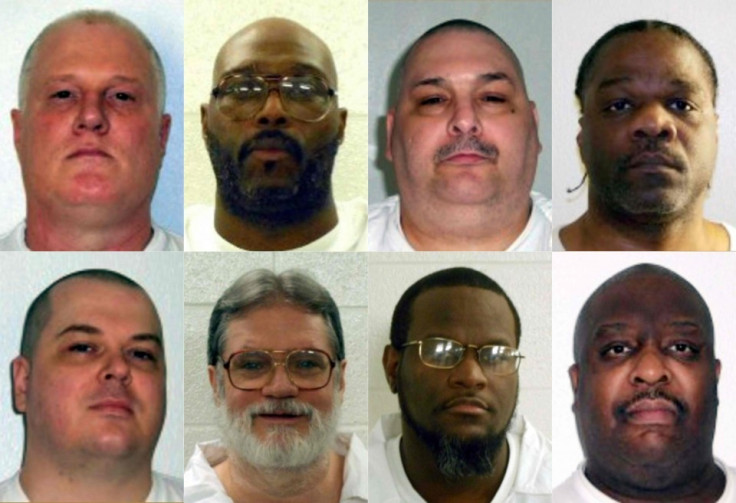Drug companies in legal bid to stop Arkansas lethal injection executions
State of Arkansas may have acquired potassium chloride from an unauthorised source, say drug firm.

A legal battle by two pharmaceutical companies has begun to prevent their drugs being used to execute seven Arkansas prison inmates over 11 days.
Fresenius Kabi USA and West-Ward Pharmaceuticals said in a court ruling they objected to their products being used by the state of Arkansas for lethal injections as it "runs counter to the manufacturers' mission to save and enhance patients' lives".
A statement from the companies added that the use of their drugs "carries with it not only a public health risk, but also reputational, fiscal and legal risks".
The number of executions, which is an unprecedented number, was announced after prison officials in Arkansas had acquired potassium chloride – one of the drugs to carry out lethal injection executions. The other drugs needed are midazolam and vecuronium bromide.
Arkansas Department of Correction spokesman Solomon Graves had previously declined to say who provided the state with the batch of the drug, due to expire in August 2018, quoting an Arkansas law that keeps the source of the drug anonymous.
However, Fresenius Kabi said it believes it manufactured the potassium chloride, and West-Ward Pharmaceuticals is of the opinion that they have made the supply of midazolam.
The drug companies say they have strict controls on supplies and do not know how their products were obtained by Arkansas officials.
"Fresenius Kabi understands the state of Arkansas may have acquired quantities of the company's potassium chloride from an unauthorised source or sources, and that the state intends to use the medication in executions this month.
"While Fresenius Kabi takes no position on capital punishment, we strongly object to the use of our products for this purpose. Our products were developed and are approved solely for patient care, and we expressly restrict the sale of our products for use in lethal injection procedures."
Governor Hutchinson set execution dates – two at a time over an 11-day period starting 17 April and ending on 27 April, according to KATV.
If the seven executions are carried out as scheduled it would mark the largest amount of inmates put to death by a US state in such a short period in modern history.
Amnesty International said the "conveyor belt of death" demonstrated "how out of step Arkansas is with the rest of the world when it comes to state-sanctioned killing".
Experts have concerns about midazolam's ability to render a person fully unconscious, increasing the risk of an unconstitutionally cruel punishment.
Assistant Federal Public Defender John Williams is co-counsel for the prisoners, and states, "Arkansas should not proceed with the dangerous execution schedule proposed. The risk of substantial harm is already present because of the lethal injection protocol, which we know will cause severe pain and suffering, like being burned alive from the inside while paralysed.
"The compressed execution schedule, asking an unpracticed staff to administer this protocol twice a day for four execution days in rapid succession, creates an extreme risk of harm and botched executions."
© Copyright IBTimes 2025. All rights reserved.




















